

EYEGEND
(2023)Eyes are unarguably one of our most important organs. When I was in high school, I imagined a civilization where eyes were owned by the few, and were worshipped by the rest. The distinction decides the social order and their way of life. After graduated from college, I extended this project and integrated my understanding of politics and society into this imagined world. Using narrative serial comics, I visualize the society and demonstrate how it changes through time. Four short chapters epitomize the limitation of the public under tyranny, the necessity of certain hierarchy in contrast of perfect equality, and the repetitional quality of all history.
I have liked reading books since I was a child; I loved to see different world settings and how those settings drive the stories forward, leading to unconventional endings. When I was in high school, I created my own setting: a civilization where only one or two people have eyes, which is proven superior in their culture; however, instead of trying to contribute more, they use their status to setup tyranny. However, at that time, my drawing skills were not really mature, but I was very passionate about it.
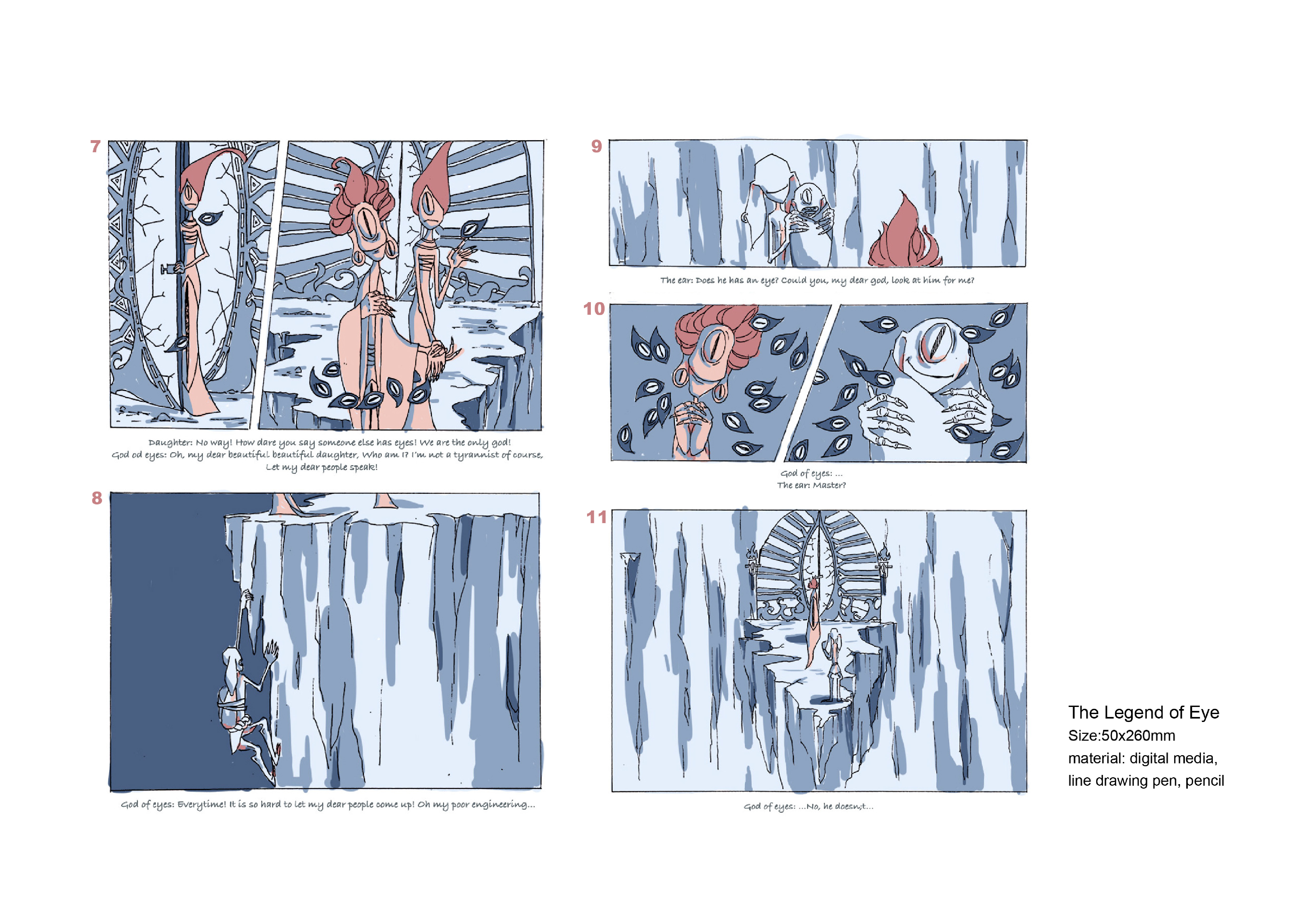
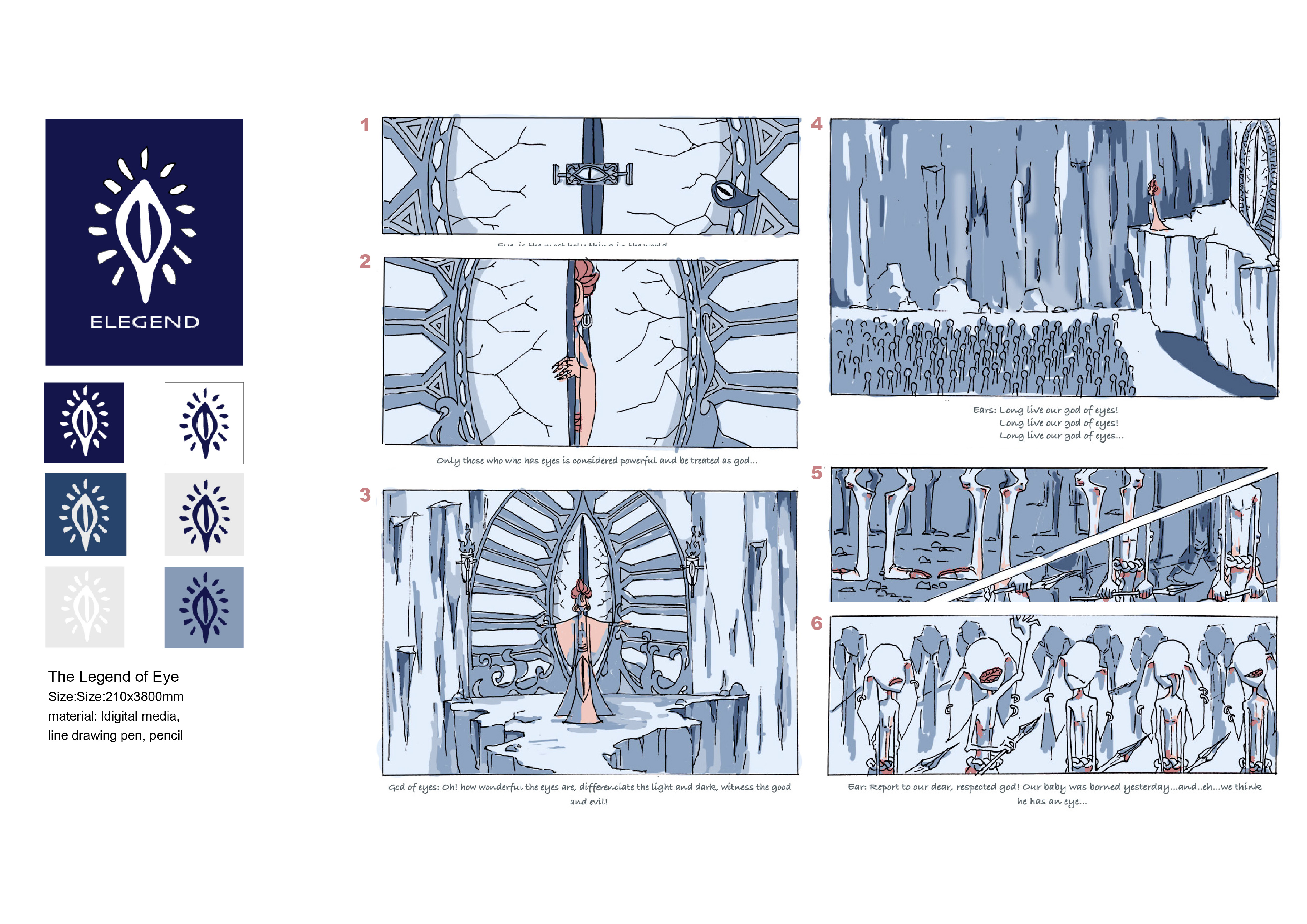
Past drawings
After six years, I picked up this comic again and more possibilities came to my mind. I decided to develop it to a more complete idea. 
New Storyboard
Lineworks









Final Book Presentation
Chapter 1
The first chapter establishes the whole setting. It describes their living mode and their social hierarchy. One day morning, the ears report to the god of eye that a baby is born and they think the baby has an eye. The tyrant appears to be nice and open, asking the ears to bring the baby up to his place. After a brief eye touching, the tyrant denies the fact that the baby has an eye. The ears are unable to see the reality, their perception of the world completely depend on the leader. Just as in our society, the people are blindfolded; those in power controls what the public can see. The governments and high status people can control the press and therefore the public opinion.
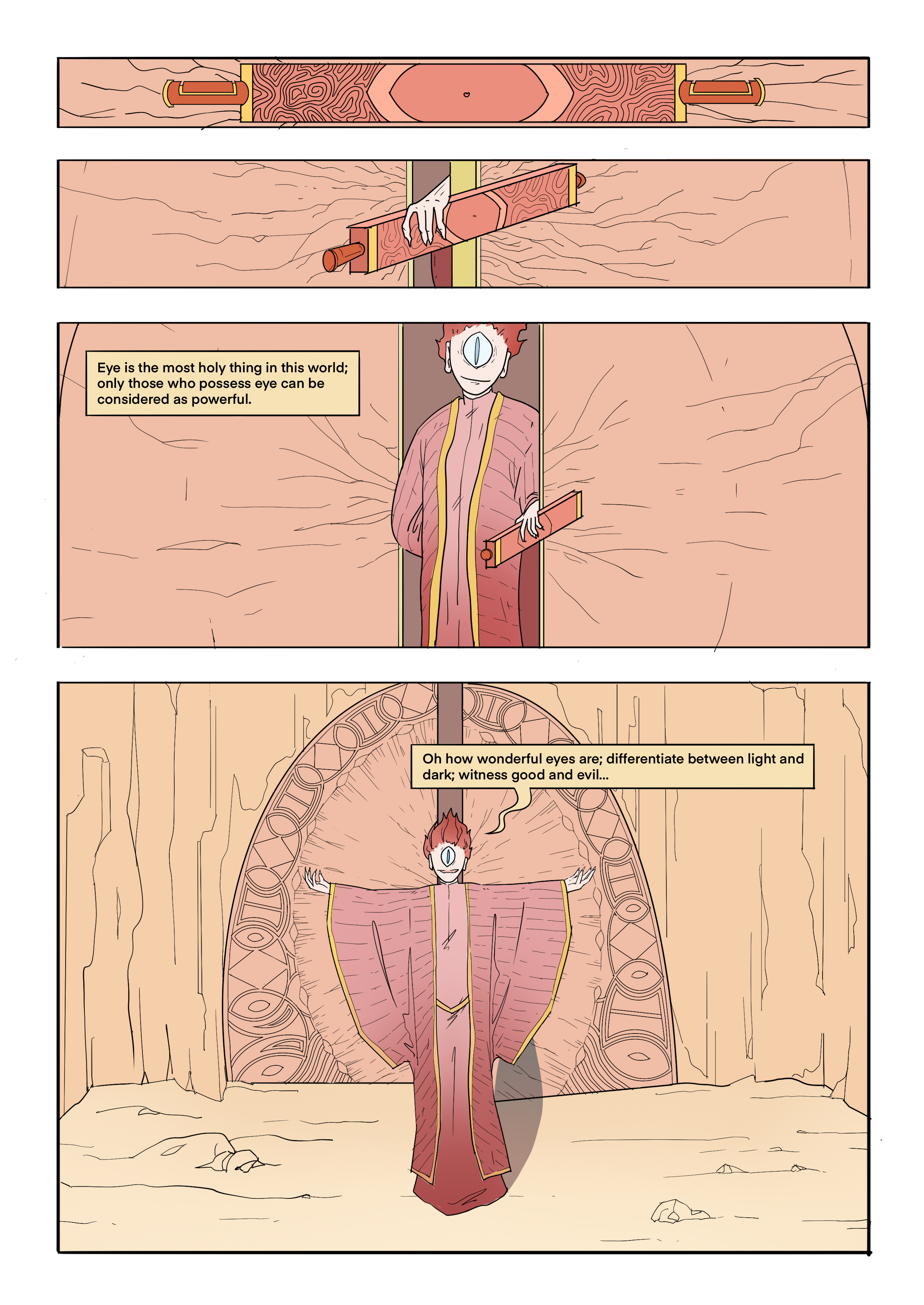
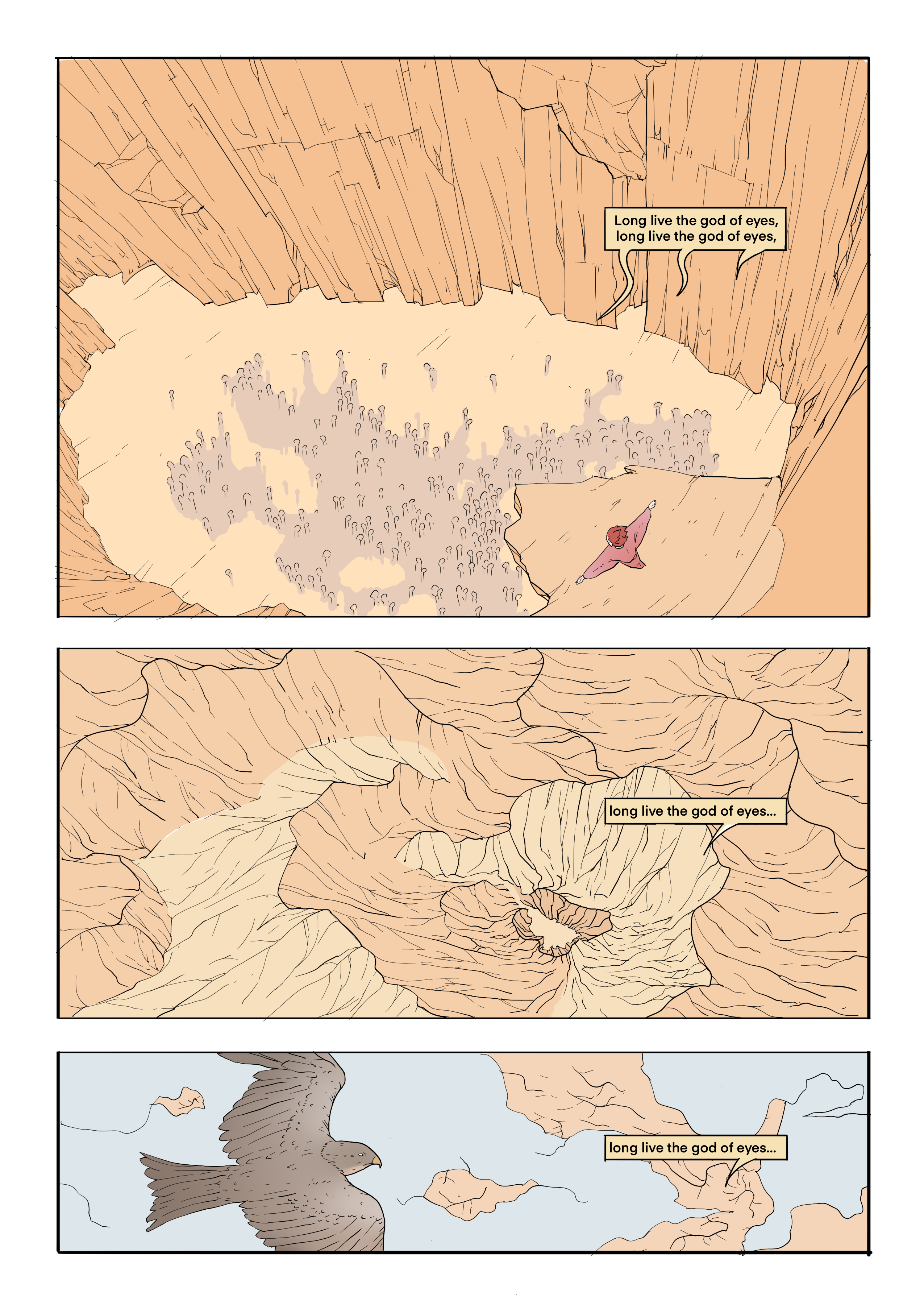
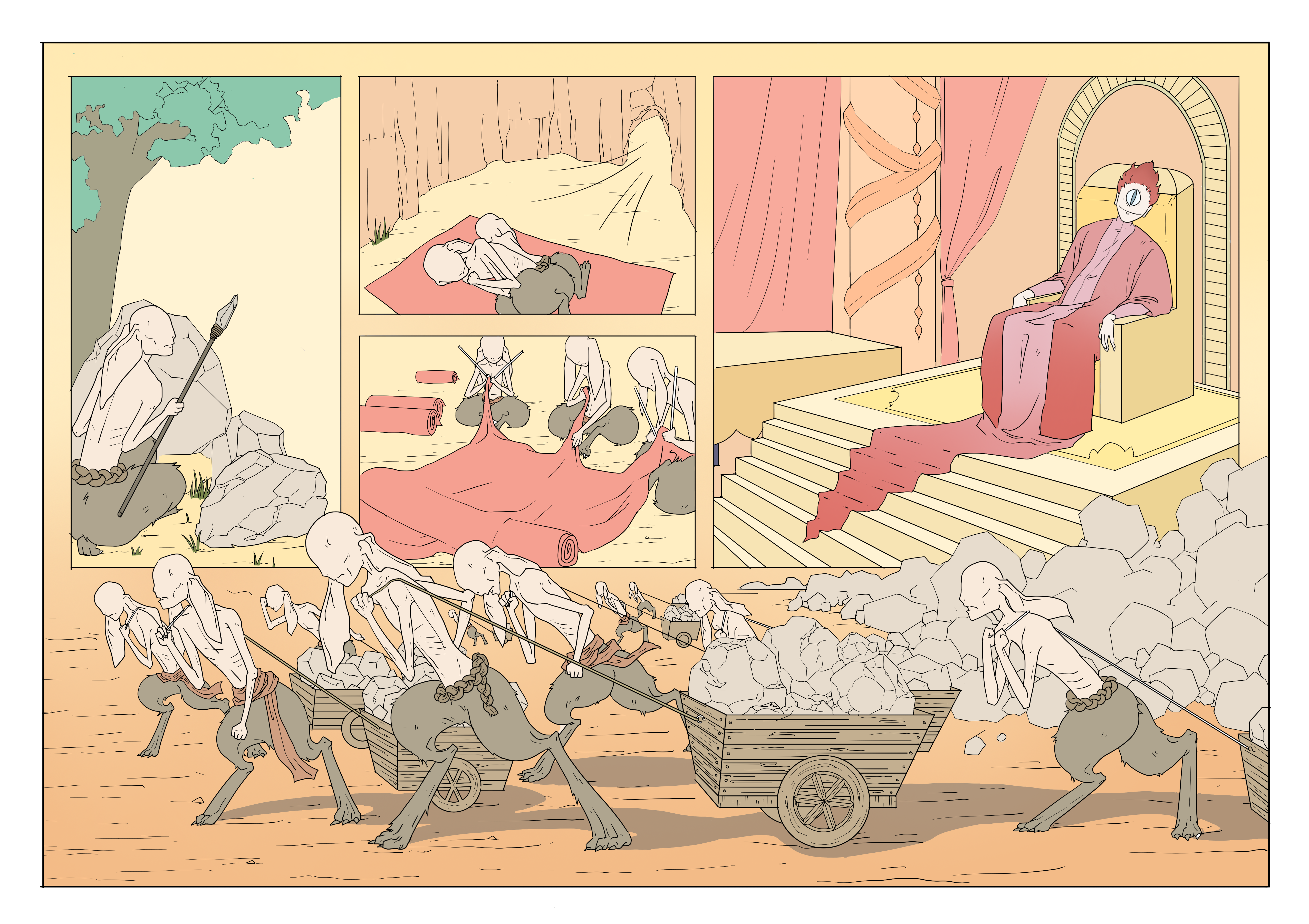


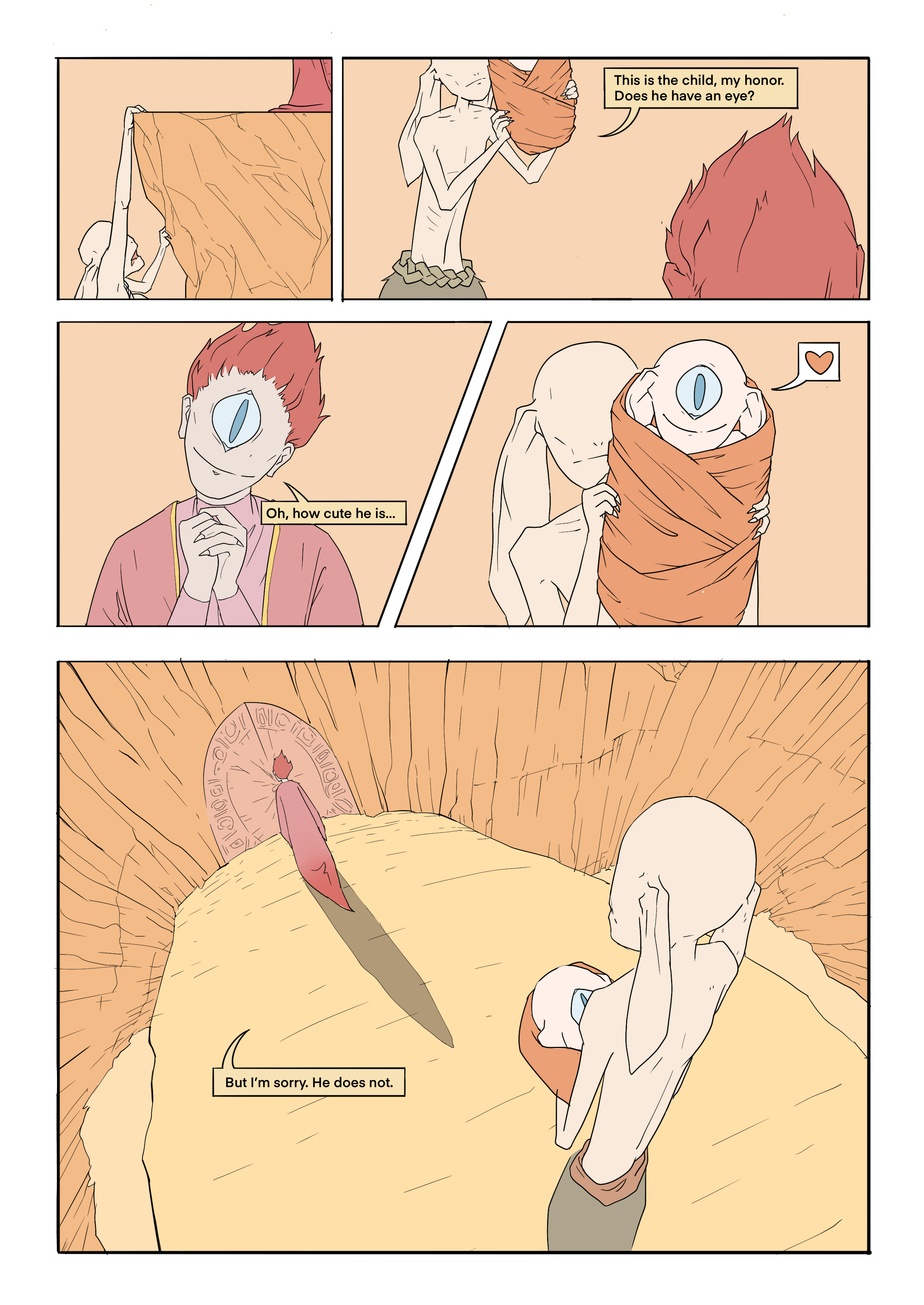
Chapter 2
In the second chapter, the baby grows up, witnessing their lives of being exploited. When his parent is dead of overworking, he decides to tell the public the truth. But when other ears hear, their first reaction is questioning and denial. But a child’s word soon waken them to face the truth. The ears subsequently initiate their revolution; a new ear comes. Without tributing to the tyrants, their living standard is significantly elevated. “Equality” become the new national ethos. This chapter is an epitome of the ending of every tyranny. Soon or later, the balance would break and people begin to fight back. A system that doesn’t benefits the all count last long.
In the second chapter, the baby grows up, witnessing their lives of being exploited. When his parent is dead of overworking, he decides to tell the public the truth. But when other ears hear, their first reaction is questioning and denial. But a child’s word soon waken them to face the truth. The ears subsequently initiate their revolution; a new ear comes. Without tributing to the tyrants, their living standard is significantly elevated. “Equality” become the new national ethos. This chapter is an epitome of the ending of every tyranny. Soon or later, the balance would break and people begin to fight back. A system that doesn’t benefits the all count last long.





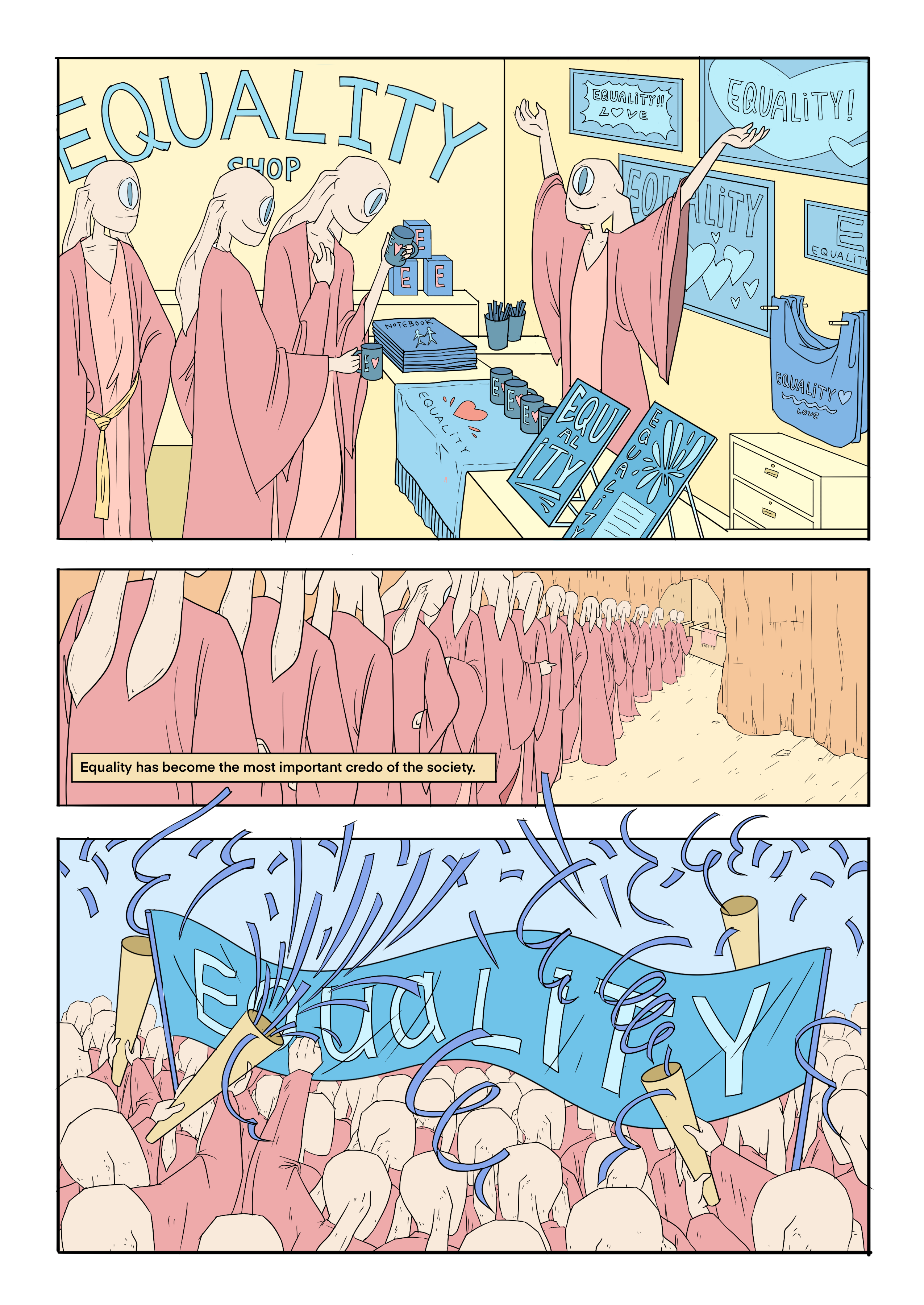
Chapter 3
Just as Darwin’s evolutionary theory, favourable variations would be more wide-spread through natural selection. After another really long time, through asexual reproduction, more and more people are born with eyes. But new problem emerges. Absolute equality leads to Low productivity, extensive violence and unsettle, food shortage, etc. The central council decides to set up a new hierarchy, which not as vicious as the old tyranny, but good enough to make the society runs. The new hierarchy differentiates people through the size of eye. However, due to blind confidence and extreme reaction, gradually, people’s eyes becomes smaller and smaller, and finally disappeared again. This chapter not only shows the utopia, or perfect equal could not last long, a degree of hierarchy is a must, but also reflects that the public could go extreme when they put too much trust on the government and themselves due to past success record.
Just as Darwin’s evolutionary theory, favourable variations would be more wide-spread through natural selection. After another really long time, through asexual reproduction, more and more people are born with eyes. But new problem emerges. Absolute equality leads to Low productivity, extensive violence and unsettle, food shortage, etc. The central council decides to set up a new hierarchy, which not as vicious as the old tyranny, but good enough to make the society runs. The new hierarchy differentiates people through the size of eye. However, due to blind confidence and extreme reaction, gradually, people’s eyes becomes smaller and smaller, and finally disappeared again. This chapter not only shows the utopia, or perfect equal could not last long, a degree of hierarchy is a must, but also reflects that the public could go extreme when they put too much trust on the government and themselves due to past success record.




Chapter 4
Chapter four is more like a bonus. Many hundred years after the eye has completely disappeared. Somewhere a new born has an eye. History is cycle. Realization, revolution, new establishment, and different problems emerge. A perfect political system doesn’t exist. Society remains, history repeats, we fight and survive.
Chapter four is more like a bonus. Many hundred years after the eye has completely disappeared. Somewhere a new born has an eye. History is cycle. Realization, revolution, new establishment, and different problems emerge. A perfect political system doesn’t exist. Society remains, history repeats, we fight and survive.

